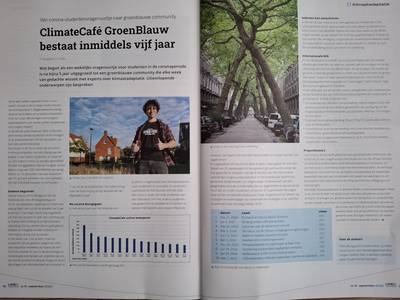MULTIFILE

Malmö is well known within the field of urban hydrology, as the city was a pioneer in integrated water management (Stahre 2008). In 1998 the Augustenborg neighbourhood was refurbished due to its reoccurring problems with flooding anddamage caused by water (Niemczynowicz 1999). The project “Ekostaden” (Eco-city) included many initiatives implementing nature-based solutions (NBS), such as swales and rain gardens for infiltrating surface (storm) water into the ground (Climate Adapt 2016) (Figure 1). International stakeholders want to know if these NBS still function satisfactorily after 20 years and what we can learn from the “Augustenborg strategy” and apply in other parts of the world. To quote the German philosopher Georg Wilhelm Friedrich Hegel, “we learn from history that we do not learn from history.” Augustenborg is an ideal location to demonstratethe sustainability of NBS, test the functionality for infiltration of surface water in swales, map the build-up of potential toxic elements (PTE), and test the water quality after 20 years operation. This evaluation is done in 2019 with theinternational, participatory and multidisciplinary method ‘ClimateCafé and the results are presented at the international seminar Cities, rain and risk,June 2019 in Malmö (Boogaard et al. 2019). ClimateCafé is a field education concept involving different fields of science and practice for capacity building in climate change adaptation. Over 20 ClimateCafés have already been carriedout around the globe (Africa, Asia, Europe), where different tools and methods have been demonstrated to evaluate climate adaptation. The 25th edition of ClimateCafé took place in Malmö, Sweden, in June 2019 and focussed on the Eco-city of Augustenborg. The main research question - “Are the NBS in Augustenborg still functioning satisfactorily?”- was answered by interviews, collecting data of water quality, pollution, NBS and heat stress mapping, and measuring infiltration rates (Boogaard et al. 2020).
DOCUMENT

Wat begon als een wekelijks vragenuurtje voor studenten in de corona periode is na bijna 5 jaar uitgegroeid tot een groenblauwe community die elke week van gedachte wisselt met experts over klimaatadaptatie. Uiteenlopende onderwerpen kwamen voorbij als ‘welke vegetatie hoort in een wadi?’, of ‘wat is de ecologie onder drijvende zonnepanelen’, Regenwaterbenutting: diverse technieken en praktijk voorbeelden en ook een paar afleveringen over (regen) waterkwaliteit: welke stoffen moeten we ons (geen) zorgen over maken? In de eerste jaren kwamen deze onderwerpen voorbij omdat studenten erom vroegen of ze presenteerden zelf de resultaten van hun afstudeerdonderzoek. Na 5 jaar is de focus meer op actualiteit in klimaatadaptatie met een doelgroep breder dan alleen studenten. Er staan er ca 250 videos online en worden gemiddeld 50 keer teruggekeken met hoogste aantal kijkers ca 500 keer. Gemiddelde aanwezigheid is ca 10 personen met een maximum van ca 75, deze grote aantallen worden zijn niet wenselijk om het informele karakter te behouden.
IMAGE

The Hanze Hogeschool Groningen, the Authoridad Nacional del Agua, and Waterschap Noorderzijlvest, together with several other Dutch and Peruvian universities, co-organise an annual ClimateCafé in the northern Peruvian areas Piura and Tumbes, as part of the Blue Deal project. The ClimateCafé methodology is a multiple-day participatory workshop composed by an international community and powered by individual, corporate, public, and academic climate change adaptation influencers. The aim is to educate and inspire tech and non-tech people, focusing on young professionals in a “learning by doing” interaction.
Triple helix samenwerking klimaatadaptie: Climatecafé Onderwijsvernieuwing zoekt naar nieuwe vormen om onderwijs dichter bij maatschappelijke problemen en probleemeigenaren te brengen. Er liggen grote opgaven voor Nederland om ons land klimaatadaptief te maken om de effecten van wateroverlast, droogte en hittestress aan te pakken. Gemeenten en waterschappen staan voor de taak binnen enkele jaren hun beheersgebied te voorzien van klimaat adaptieve maatregelen binnen beperkt budget, ruimte en tijd. Daarom is het van belang dat onderwijs hierin een grote rol krijgt. De Hanzehogeschool Groningen heeft in samenwerking met de hogeschool Rotterdam een activiteit ontwikkeld waar onderwijs, onderzoek en bedrijfsleven samen komen: Climatecafé Waterprof is een MKB die jong professionals in de watersector opleidt tot procesmanagers van complexe maatschappelijke watervraagstukken. Hierbij zoekt Waterprof naar vernieuwende methoden om opdrachtgevers te ondersteunen. Waterprof houdt zich daarom ook bezig met promotie van onderwijsvernieuwing binnen het praktijkgerichte hogeschoolonderwijs. De samenwerking met Hanze en publieke partijen kan een boost geven aan de uitdaging voor onderwijsvernieuwing en helpen bij een bredere uitrol van het product Climatecafé bij andere hogescholen in Nederland en internationaal praktijkonderwijs. Binnen dit project worden Climatecafés georganiseerd met private en publieke partijen om deze doelstellingen te behalen.
Onderwijsvernieuwing zoekt naar nieuwe vormen om onderwijs dichter bij maatschappelijke problemen en probleemeigenaren te brengen. Er liggen grote opgaven voor Nederland om ons land klimaatadaptief te maken om de effecten van wateroverlast, droogte en hittestress aan te pakken. Gemeenten en waterschappen staan voor de taak binnen enkele jaren hun beheersgebied te voorzien van klimaat adaptieve maatregelen binnen beperkt budget, ruimte en tijd. Daarom is het van belang dat onderwijs hierin een grote rol krijgt.De Hanzehogeschool Groningen heeft in samenwerking met de hogeschool Rotterdam een activiteit ontwikkeld waar onderwijs, onderzoek en bedrijfsleven samen komen: ClimatecaféWaterprof is een MKB die jong professionals in de watersector opleidt tot procesmanagers van complexe maatschappelijke watervraagstukken. Hierbij zoekt Waterprof naar vernieuwende methoden om opdrachtgevers te ondersteunen. Waterprof houdt zich daarom ook bezig met promotie van onderwijsvernieuwing binnen het praktijkgerichte hogeschoolonderwijs. De samenwerking met Hanze en publieke partijen kan een boost geven aan de uitdaging voor onderwijsvernieuwing en helpen bij een bredere uitrol van het product Climatecafé bij andere hogescholen in Nederland en internationaal praktijkonderwijs.